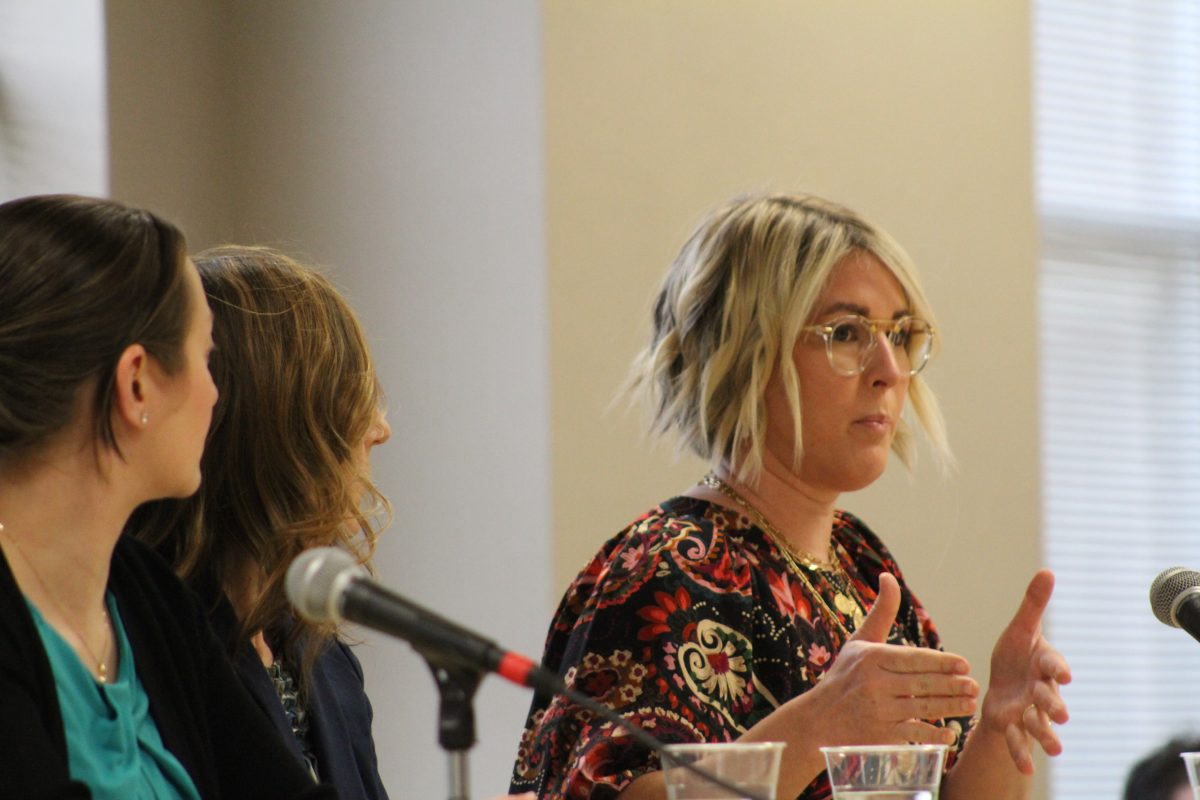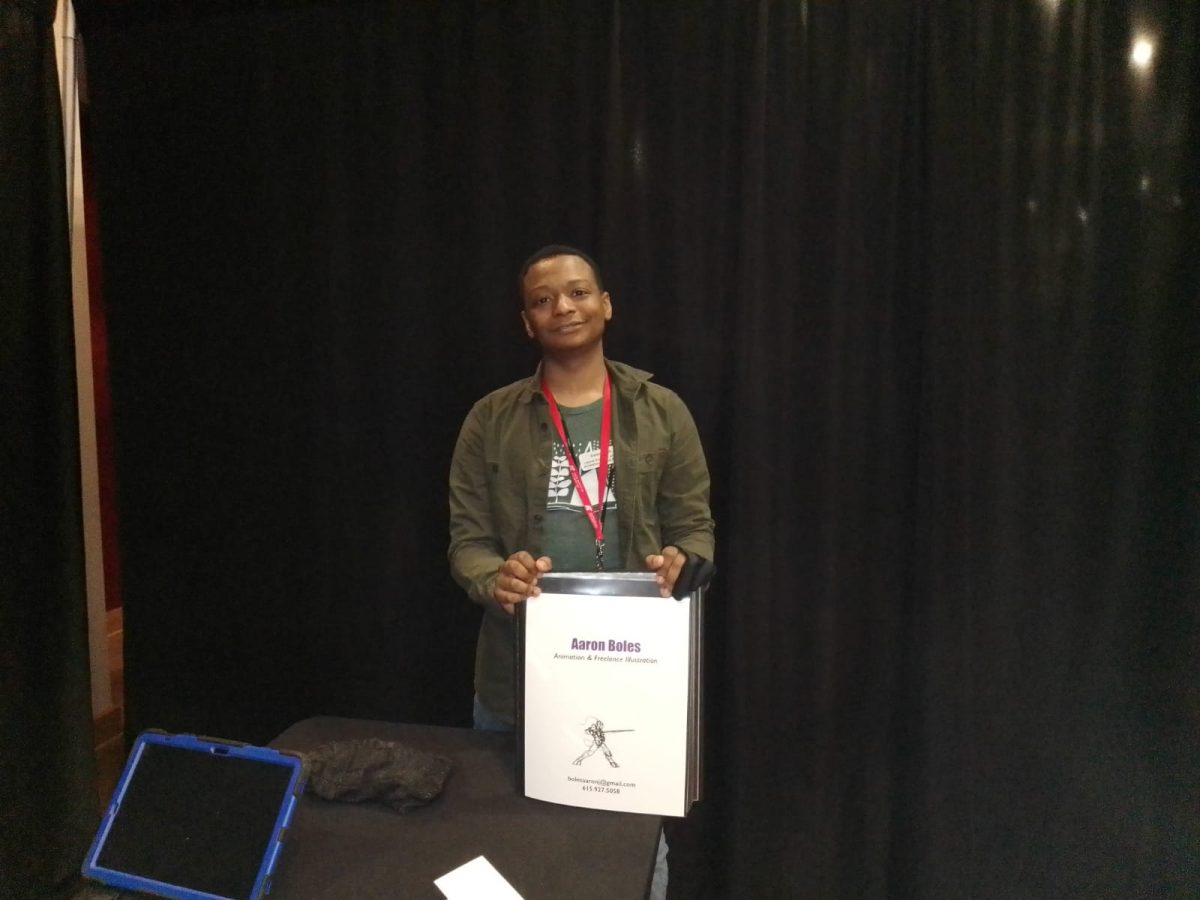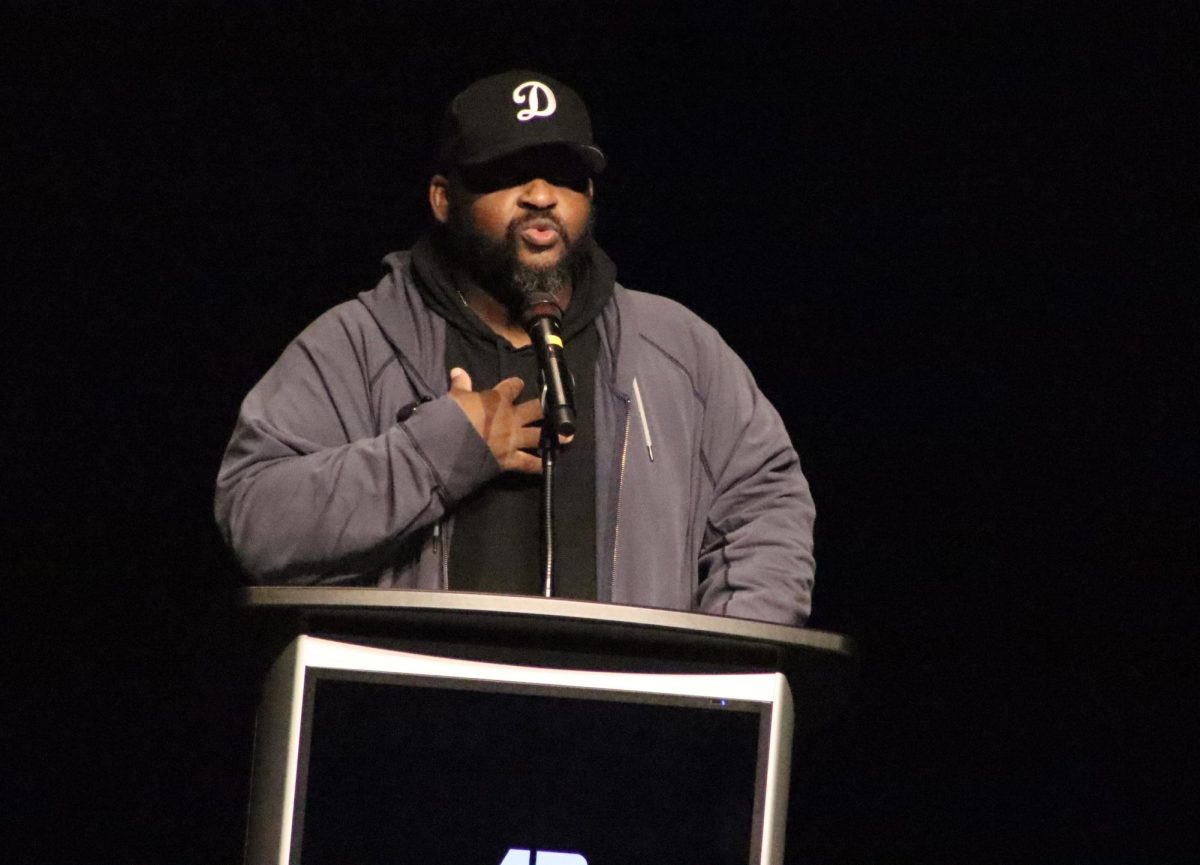(Right to left) Dr. Ashley Huff, Deborah Farringer Esq, and Chloe Akers Esq. spoke at the panel on Friday, Feb. 24 in the MUC.
On Friday, Austin Peay’s College of Behavioral and Health Sciences and College and College of STEM sponsored a panel of speakers to discuss how Tennessee’s abortion laws have affected or could affect healthcare and law in the state.
Tennessee’s current abortion law is one of the most strict in the country.
In its current state, it does not include any exemptions. It does include an affirmative defense, which places the burden on the doctor to prove that the abortion was necessary because the patient’s life was at risk.
Dr. Tracey Coffey, an Obstetrician and Gynecologist, said that those in her field were now operating under a different set of guidelines. Coffey also said that patients in the state have already had care delayed by the chilling effect of the law as healthcare workers second-guess themselves.
“We know what the appropriate standard of care is, we know what the appropriate medical treatment is. But now we have to consider, is the patient sick enough? Is she close enough to death to warrant us performing the surgery that she needs?” said Coffey.
Coffey said that doctors that treat patients with abortion even in the case of unviable or ectopic pregnancies could be personally liable under the law, creating a dangerous hesitation.
Dr. Ashley Huff, an emergency and EMS physician, said that although subject to more public opinion, the procedure in these cases was no different medically for any other treatment for a diagnosis, saying, “I know that this is a controversial issue so people feel a little bit differently about it. But from a medical perspective of treating patients appropriately and treating a diagnosis appropriately, it’s really no different than sending a heart attack patient to a cath lab.“
Huff said she was unconvinced malpractice insurance would cover her if she were charged after treating an ectopic pregnancy, and that being convicted could mean a decade in prison and the potential loss of a medical license.
Chloe Akers, a criminal defense attorney, stressed that this legislation wouldn’t prosecute the patient themselves. “Anyone seeking an abortion is not going to get arrested and charged with criminal abortion, the patient themselves. It is the provider, anyone who assists the provider, and anyone who assists the patient in obtaining that care to a certain degree.”
Akers said that patients should not expect legal ramifications for seeking care out of state, and that she believes this is an important message to those who might be worried about being prosecuted.







